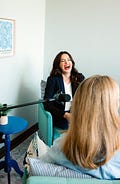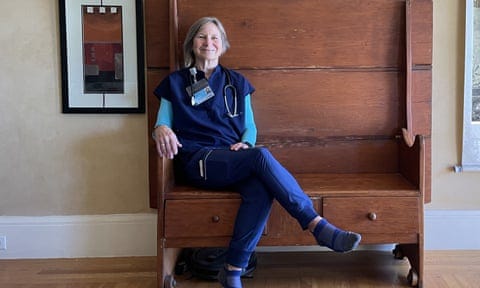Quick: What is it you’ve always wanted to do?
Play the trombone? Row across the ocean, even after spinal surgery? Learn to meditate to cure your insomnia, then share your knowledge with the world?
If you’re shaking your head at the preposterous idea of starting over “at your age,” I hope you will JUST STOP a minute and lose yourself in a wonderful series of profiles that the Guardian newspaper in the UK is publishing, called “A New Start After 60.”
These little flashes of encouragement and inspiration tell the stories of regular people who had to start their lives over, for whatever reason. Some experienced a terrible loss — the death of a spouse, a degenerative illness. Some were retired, finally finding the space in their lives to think about what they might really want to do, rather than what they were supposed to do. Some just realized that getting older meant they finally had the freedom to try something they might have thought was crazy or out of reach in their younger lives.
There’s the one about a woman who learned to be a stone carver when she turned 60. The man who couldn’t ski any more but learned to snowshoe and went on an expedition in the Austrian Alps at 82. The guy who released his first album of songs at 61.
Is it possible that the years between 60 and 70 could be our most productive yet? Or maybe let’s drop the productivity talk — perhaps this season can be our HAPPIEST yet?
We already know so much about life, about grief, about failure, about persistence. We know who and what makes us happy and how to clear away things that stand in the way. If nothing else, we know that it is up to us — and only us — to make sure that our best years aren’t behind us.
Reading these luminous stories and thinking about my own life and prospects convinces me that this is entirely possible and absolutely true.
Of course I found out about these late-in-life change stories from Kate Bowler, the queen of holding space for change you never wanted but leaned into anyway.
Kate is a Duke University religion professor who was diagnosed with Stage IV colon cancer at age 35, just as her academic career and family life seemed settled and happy. That story was how I found her, through her bestselling book about her cancer journey, Everything Happens for a Reason (And Other Lies I’ve Loved). Her latest book, Have a Beautiful, Terrible Day! is pretty great, too. It acknowledges that sometimes you’re not “just fine,” and that’s okay. Life can be hard.
But what I love most is listening to Kate’s podcast, Everything Happens. Her gentle empathy and frequent belly laughs add such a wonderful layer of insight to her writing. She’s an incredible interviewer and her subjects — some famous (Alan Alda, Dr. Vivek Murthy) and some not — always turn out to be just what you want to hear that day.
But back to that thing you always wanted to do. I have a couple.
I love rowing — at least on a rowing machine at the Y — and would really like to learn how to row on actual water, as part of a crew. Maybe in my future life I’ll live in Washington, DC, and can learn to row on the Potomac River. The last time we were there, the river was dotted with rowing shells of all kinds. Surely one team was made up of women who would welcome a late-in-life add-on.
My other secret plan is that I’ve always wanted to start a singing group that visits patients and families in hospice or palliative care facilities. I’ve sung at the bedsides of both my dying mother and a dear church friend, and have seen how music can literally change the air in the room and help everyone relax. Maybe it’s time to think about how to make that happen. Or maybe someday it will be.
And that’s why my favorite profile in the Guardian’s starting-over-after-60 series is the extraordinary story of Laura Horn (above), a widow who began volunteering at a hospice then went back to school to become a registered nurse, specializing in palliative care. “I know loss,” she told the agency that first trained her as a volunteer.
What she discovered is that it’s the relationships that sustain us, especially at the end. “If I’ve learned nothing else,” Horn said, “it’s that we can’t live a full and meaningful life without deep relationships. And that’s what I’m hoping for.”
Me, too.
Now it’s your turn: Has your life taken a new direction after 60? I know it’s kind of scary, but I hope you’ll share your story in the comments, below. Thanks, as ever, for reading.






Thresholdchoir.org is a national web of choirs that visit hospice patients. (I belonged to the New York City chapter for a few years). Start a Memphis chapter? 😌
I have always wanted to row. If you get a group together, let me know.